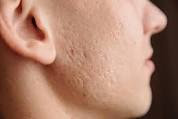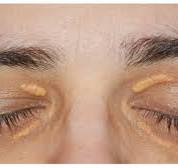How to Reduce Melanin
Melanin is not a condition or disease, but a natural pigment that gives color to the skin, hair, and eyes. However, there are conditions related to melanin production, such as hyperpigmentation or hypopigmentation. Here is some information on the causes, symptoms, and treatments for these conditions:
Hyperpigmentation
Hyperpigmentation is the darkening of an area of skin due to increased melanin production. The causes of hyperpigmentation include sun damage, hormonal changes, acne, and skin inflammation. Symptoms of hyperpigmentation can include patches of skin that are darker than the surrounding skin, uneven skin tone, and dark spots on the face, hands, or other parts of the body.
Treatments
- Use skin lightening products: There are various skin lightening products, such as creams, serums, and lotions, that can help reduce the appearance of hyperpigmentation. These products contain ingredients such as hydroquinone, vitamin C, kojic acid, and alpha-arbutin, which work by inhibiting melanin production.
- Use sunscreen: Sun exposure can stimulate melanin production and cause hyperpigmentation. Therefore, it is essential to use a broad-spectrum sunscreen with an SPF of 30 or higher every day, even on cloudy days.
- Chemical peels: Chemical peels can help to reduce the appearance of hyperpigmentation by removing the outer layer of skin. They work by using acids, such as glycolic acid, salicylic acid, and lactic acid, to exfoliate the skin and promote cell turnover.
- Laser treatments: Laser treatments can be used to target and break down melanin in the skin. These treatments can be effective for reducing the appearance of hyperpigmentation, but they should only be done by a trained professional.
- Avoid picking or scratching the skin: Picking or scratching at the skin can cause inflammation and stimulate melanin production, which can lead to hyperpigmentation. It is important to avoid picking at the skin and to keep it clean and moisturized.
Hypopigmentation
Hypopigmentation is the lightening of an area of skin due to a lack of melanin production. The causes of hypopigmentation include skin damage, autoimmune disorders, genetic conditions, and certain medications. Symptoms of hypopigmentation can include patches of skin that are lighter than the surrounding skin, white or pale spots on the skin, and reduced color in the hair or eyes.
Treatment options for hypopigmentation may include the use of skin lightening products, microneedling, and medical tattooing. In some cases, the underlying condition causing hypopigmentation may need to be treated as well.
It is important to note that any changes in skin color should be evaluated by a dermatologist to rule out underlying medical conditions or skin cancer. Treatment options should be discussed with a healthcare professional.
To know more about Dr. Amey Kelkar visit our website Derma Solutions





Great tips, Sun protection and natural products like Vitamin C can really help with hyperpigmentation. Always good to consult a dermatologist for personalized advice.
ReplyDelete